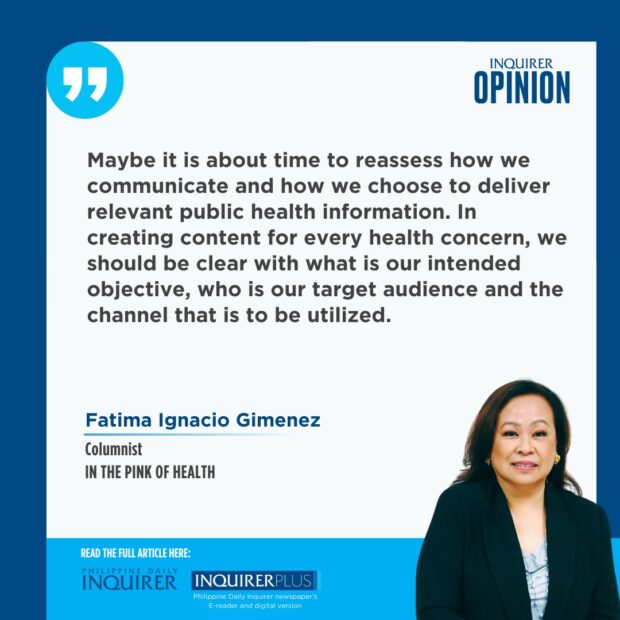Let’s DOH a Flavier

In the late 1990s, as a pediatric resident, one man was instrumental in lending more meaning to the words “public health” and “selfless.”
Though I have never met him and wished that there was an opportunity to have done so, we are all recipients of his hard work and his vision, having faithfully served as a secretary of health and senator.
Then Senate President Franklin Drilon in his eulogy aptly entitled, “A Man For Others,” described him as “the quintessential communicator” who had a knack for delivering serious messages in a lighter, but certainly in a more effective way, and “a giant of a man” who despite his lack in height had “monumental achievements that made him stand out from the rest.” Moreover, Drilon said, ”What made him extraordinary was his strong compassion for those who have less in life, his sense of duty, and commitment to make a difference.”
He was absolutely right. Dr. Juan M. Flavier can only be best described in superlatives. To choose to live a life of service at the onset is not for the faint-hearted. His rich experience as a rural doctor and in-depth understanding of the more pressing health concerns were evident in the programs he instituted. His solutions were realistic and grounded, and he championed health in a language that was understood by many. His slogans were pointed and encompassing.
Against infectious diseases, he had the Stop TB Program, Kontra Cholera, and Oplan Alis Disease, which led to the Philippines being declared polio-free by the World Health Organization. For AIDS awareness and prevention, he found the perfect acronym: ABC, which stood for abstinence, be faithful, and condom use. Together with his campaign against cigarette smoking through Yosi Kadiri serving as the poster mascot, he dared to swim into controversial issues undaunted. This campaign was instrumental in increasing awareness and gathering public support that led to the approval of the sin tax law and the graphic health warning that you see on cigarette packs.
For micronutrient malnutrition, he launched Sangkap Pinoy, and to address the lack of physicians in the rural areas, we are eternally grateful for the Doctors to the Barrios program which is still very much in existence.
As a senator he was exceptional as well, serving as author and sponsor of numerous and relevant bills, such as the traditional medicine law, the Poverty Alleviation Act, the Philippine Clean Air Act, and the Indigenous Peoples’ Rights Act, among others. He is also best remembered for his honesty, being a person of integrity, and genuine generosity. Despite all his laurels, he remained humble. His simplicity and quick wit made him relatable. He was an inspiration to all.
The memory of him and his lifework was triggered not only by a strategic planning workshop for an advocacy program on immunization but also by a recent health advisory on the prevention of monkeypox. Doctor Flavier knew how to get his message across and was successful at connecting with people. How was he able to do it? From his vast experience, one could only wish to know if he had a template, or if ever he had a protege or a mentee who was willing to share his or her learnings from the time spent with him. How do you find the words that would stick, much like his? How would you be able to dig deep into the grassroots level and increase health literacy which he was successful at?
For starters, maybe it is about time to reassess how we communicate and how we choose to deliver relevant public health information. In creating content for every health concern, we should be clear with what is our intended objective, who is our target audience and the channel that is to be utilized.
While it is tempting to rely heavily on social media for health-related issues and awareness campaigns, it is important to remember that access plays a big role, and not all people are privileged to have the means to have an internet connection. The more traditional methods of communication such as radio, television, and newspapers may still be ways to broaden reach.
In the past couple of years, being privileged to be part of immunization awareness campaigns, I have also come to painful realizations that no matter what language one uses to communicate scientific knowledge, there are limits to a person’s capacity to understand the gravity of a situation, how it concerns him or how it can affect his family, and how personal and religious beliefs may also play a factor in the eventual decision to have his or her child vaccinated. While there are laudable programs created, just how much of a success these are remains to be measured and documented.
Listen, act, and talk less, maybe?
—————–
timgim_67@yahoo.com




















